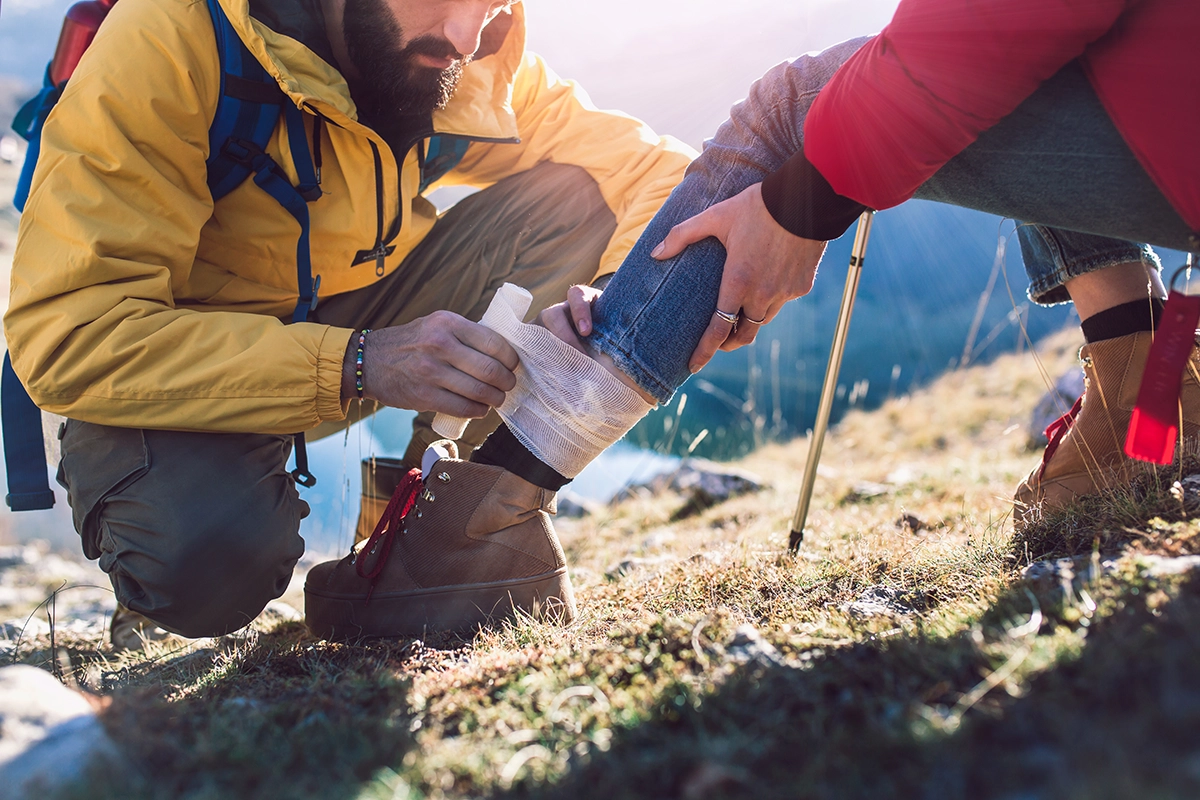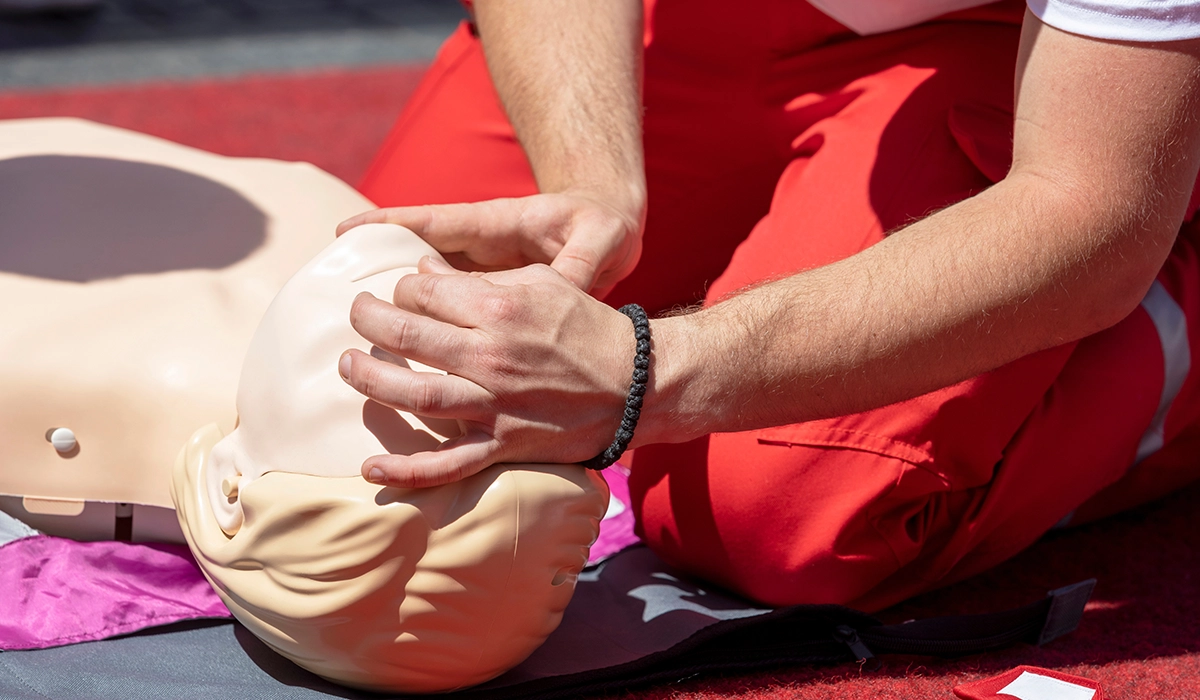
A Guide to Outdoor First Aid Courses
Nature beckons with its promise of adventure and escape. But venturing into the wilderness also carries inherent risks. Whether you’re a seasoned hiker, a casual camper, or a weekend kayaker, being equipped with outdoor first aid skills can make all the difference in an emergency situation.
An outdoor first aid course goes beyond the basics of CPR and wound care. It equips you with the knowledge and confidence to handle emergencies that can arise specifically in remote or challenging environments. Here’s a comprehensive guide to help you navigate the world of outdoor first aid courses and choose the one that best suits your needs.
Why Take an Outdoor First Aid Course?
Think of an outdoor first aid course as an insurance policy for your adventures. Here’s why it’s a worthwhile investment:
- Peace of Mind: Knowing how to react in an emergency can significantly reduce stress and allow you to make clear decisions during a crisis.
- Increased Safety: Being prepared can prevent minor injuries from escalating into life-threatening situations.
- Helping Others: These skills empower you to assist fellow adventurers who might encounter medical emergencies on the trail.
- Fulfilling Requirements: Many outdoor activities, such as leading guided hikes or working as a wilderness guide, require a valid outdoor first aid certification.
What to Expect in an Outdoor First Aid Course:
Outdoor first aid courses typically range from one to two days, with a mix of classroom instruction and practical scenarios. Here’s a breakdown of what you can expect:
Classroom Learning:
- Basic first aid principles: You’ll revisit core concepts like CPR, wound care, and controlling bleeding.
- Assessing an emergency scene: Learn how to prioritise safety, assess the situation calmly, and determine the severity of an injury.
- Environmental considerations: Courses will address specific challenges faced in outdoor environments like dealing with hypothermia, altitude sickness, and snake bites.
- Resource limitations: You’ll learn to manage situations with limited medical supplies and delayed access to professional help.
- Decision making: The course will equip you with the skills to make critical decisions under pressure and improvise solutions with available resources.
Practical Skills:
- Bandaging and splinting: Learn how to properly apply bandages and splints to stabilise injuries.
- CPR and AED use: Practice cardiopulmonary resuscitation and automated external defibrillator usage on mannequins.
- Treating common outdoor injuries: Gain hands-on experience dealing with wounds, sprains, burns, and other injuries frequently encountered outdoors.
- Scenario-based training: Participate in simulated emergency situations to test your knowledge and decision-making skills in a practical setting.

Choosing the Right Course for You
There’s no one-size-fits-all approach to outdoor first aid training. Here are some factors to consider when choosing a course:
Level of Commitment:
- One-day courses: Ideal for casual outdoor enthusiasts seeking basic knowledge and emergency preparedness skills.
- Two-day courses: Provide a more comprehensive understanding of first aid principles and offer in-depth training on managing various outdoor emergencies.
Focus and Specialisation:
- General outdoor first aid: Suitable for all levels of outdoor activities, these courses cover a broad range of wilderness emergencies.
- Specialised courses: Cater to specific activities like wilderness medicine for backpackers, first aid for whitewater kayaking, or climbing-specific first aid.
Outdoor First Aid Certification:
- Certification validity: Some certifications require renewal every two to three years to maintain validity.
- Recognition: Ensure the course meets the requirements of your governing body, if you need the certification for professional purposes.
Outdoor First Aid Course Provider:
- Reputation: Look for established organisations with experienced and qualified instructors.
- Location and schedule: Choose a course that fits your location and timeframe.
- Class size: Smaller class sizes allow for more personalised attention and practical training opportunities.
Additional Considerations:
- Cost: Course fees vary depending on duration, location, and instructor qualifications.
- Renewal requirements: Understand the process and costs associated with renewing your certification if applicable.
Online Resources:
While online resources can provide valuable information, they are not a substitute for hands-on training and practical skills development offered by a certified outdoor first aid course.
Outdoor First Aid: Maintaining Skills and Expanding Knowledge
Taking a course is just the first step. Here are some ways to keep your skills sharp and expand your knowledge:
- Practice regularly: Organise practice sessions with friends or family to refresh your memory on essential techniques.
- Invest in a first-aid kit: Assemble a well-stocked first-aid kit tailored to your specific outdoor activities.
- Stay updated: First-aid guidelines and best practices can evolve over time. Take refresher courses periodically to stay abreast of the latest recommendations.
- Seek additional training: Consider enrolling in specialised courses to enhance your knowledge in areas relevant to your preferred outdoor activities.
- First-aid apps: Download reputable first-aid apps that can provide guidance and reference materials in the field. However, remember, these apps are not replacements for proper training.
Conclusion
An investment in outdoor first aid training empowers you to navigate the wilderness with greater confidence and preparedness. By equipping yourself with the necessary skills and knowledge, you can ensure a safer and more enjoyable experience for yourself and your fellow adventurers. Remember, even basic first aid interventions can make a critical difference in an emergency situation. So take the first step, enrol in a course, and be prepared to face the unexpected on your next outdoor adventure.
Bonus Tip:
Advocate for raising awareness about outdoor first aid training within your local outdoor community. Organise group training sessions or encourage fellow enthusiasts to seek proper first aid education. By working together, we can create a culture of preparedness and ensure a safer outdoor experience for everyone.
For more information on Outdoor First Aid Courses contact Herts Young Mariners Base.
